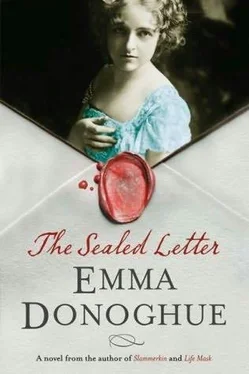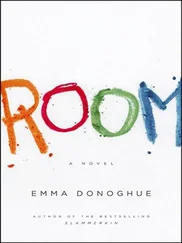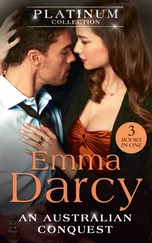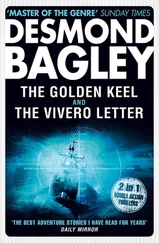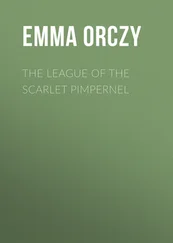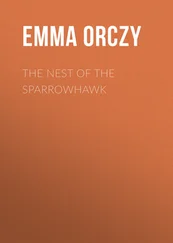***
The late October afternoon is cold. Harry's been motionless in a wing chair for hours, near one of the six fireplaces in the Rag Club's famous coffee room. He's brooding over his daughters: what to tell them next week when he collects them from Mrs. Watson's house and takes them home to Eccleston Square. He's trying out lines in his head.
Mama did some very wrong things, and has gone away. Feeble, childish.
Your mother doesn't deserve to be a mother anymore. Unnecessarily cold.
It may be best to think of her as dead. Dead to us. No, Nan and Nell will start to shriek. He won't be able to bear it.
A divorce means that your Mama must go and live far, far away. In fact he has no idea what'll become of Helen: where she'll go, or what she'll do with herself. In his concluding interview with Bird, yesterday, Harry almost weakened and proposed making her some kind of allowance-but then he got hold of himself again.
Your mother… Need he say anything to them? The wrong words might be worse than none. Girls are quick to pick these things up without anything being spelled out. Should he perhaps simply bring them home in a cab, chatting about their zoetrope all the way, and make no reference to their missing mother, that day or ever again?
Two members come in and take a table behind him; he doesn't recognize their voices. It's the word poker that catches his attention. "In his nightshirt, poker at the ready," one is muttering. "Stiff as the proverbial!"
"Well, he was afraid the ladies would take a chill if he didn't rouse their flame," puts in the second man with a snigger. "When all the time the joke was on the ancient mariner, because they'd no need of his ministrations."
"Not those gels. Things were warm enough in the nuptial bed already-without him!"
Harry's hands form fists in his lap.
"The friend must be not just strong-minded, but strong-armed too, if she could beat off such a giant while she was doped to the gills," says the first man with a guffaw. "She was too many for the admiral. Oh yes, thank you, three lumps."
Drop it, Harry commands himself, as the two are served their coffee, a few feet behind him. He has no power to stop people having private conversations. He's become what the managers of great concerns call a household name.
But that first needling voice carries on, once the waiter's gone. "To my way of thinking, it was no more than the old buffer deserved."
"Oh really?"
"Well, for years before the wife started straying, he hadn't been much of a husband, by the sounds of it."
"She was bold as brass," objects the second.
"Still, he oughtn't to have stood for it, like the judge said. Stands to reason, she must have been thwarted in her normal appetites, to turn to the other thing."
What have I done? Harry asks himself. In those small, cramped chambers of Bird's, Mrs. Watson made up the most revolting rumour, and Harry agreed to spread it, and now the public takes it as gospel. Imaginary monsters walk the streets.
"Hm," says the second man, as if they're discussing a great question of the day, such as sewer construction or Irish tenant right. "But by all accounts she has more than the usual quota, when it comes to appetite."
"Notwithstanding. My wife's of a warm enough constitution, but you wouldn't catch her resorting to such folderols, not unless I'd left her in a very sad state of frustration!"
Harry can bear no more. He rears up so fast the chair skids, and spots appear before his eyes. He takes two steps, towers over the two men. "Do you know me, sir? Or you?"
One looks bewildered, the other, queasy. The one who hasn't guessed begins, "I don't believe I've had the honour…"
"My name is Henry John Codrington," he growls. I loved my wife as best I could, he wants to shout. I was not a brute and she was not a freak. "I don't know yours, but I can say with confidence that you're no gentlemen."
"Come, now, Admiral-"
"Everything all right?" The porter is at Harry's elbow.
Harry ignores him. "Such scurrilous indecency! You dare to sit here, soiling the name of a lady you've never met-" His head's a whirl of confusion. Can he really be defending Helen's honour-he, who to destroy that honour has squandered thousands of pounds and the long, impeccable patrimony of the Codrington name?
One of the men manages a half-smile. "We only repeat what's said in the papers."
"That's a worm's excuse."
The porter's put his hand on Harry's elbow. "Now, now, Admiral. No altercations in the club."
"In our fathers' day," says Harry, waving a finger in their nervous, smirking faces, "I'd have had you out. I'd have taken you by the throat and caned you like the curs you are."
"No altercations in the club," repeats the porter, leading him away.
(in law, an unmarried woman)
Rise! If the past detains you,
Her sunshine and storms forget;
No chains so unworthy to hold you
As those of vain regret:
Sad or bright, she is lifeless ever.
Cast her phantom arms away;
Nor look back, save to learn the lesson
Of a nobler strife To-day.
Adelaide Procter,
"Now" (1864)
NB-letters from applicants for employment being not infrequently sent to the Victoria Press, under the mistaken impression that its proprietor, Miss E. Faithfull, represents SPEW and is the right person to apply to for situations, it is thought advisable to explain the real state of the case here.
It was at one time contemplated by the society to establish a women's printing press, but the committee came to the conclusion that the undertaking would be more likely to succeed if left to private enterprise; accordingly, Miss Faithfull took up the project entirely under her own aegis and on her own behalf. The society wishes to clarify that it has no contractual or organizational connections with the Victoria Press. Miss Faithfull has not for the past four years had any share in the management of SPEW or the English Woman's Journal, and correspondence intended for her ought accordingly not to be addressed to the society's offices at 19 Langham Place.
It is hoped that with this clarification the subject may be considered closed.
Alexandra Magazine and English Woman's Journal,
Number 1 (Autumn 1864)
***
Langham Place
October 30, 1864
Dear Miss Faithfull,
I enclose the final draft of the first issue of the Victoria Magazine, and look forward to seeing the galleys as they come off the press.
As you cannot be unaware, however, your unexpected absence for several weeks caused me many difficulties with regard to readying this issue for publication. That task for additional reasons proved more onerous than I expected; I must tell you that I have found it well-nigh impossible to reach the high standards to which we both aspire, with the budget you have made available to me. I do appreciate that investment must grow gradually, but at present, without the funds to pay the best writers, I am doubtful of what real improvement is possible.
It is not without much hesitation that I have decided to withdraw as of next month from the challenge you so kindly offered me, that of shaping aperiodical which I have no doubt will in time, under your own editorship or another's, become an important one, and an eloquent organ of our Cause.
Certain extraneous factors have, of course, played their part in my decision. We need not discuss them.
Читать дальше
